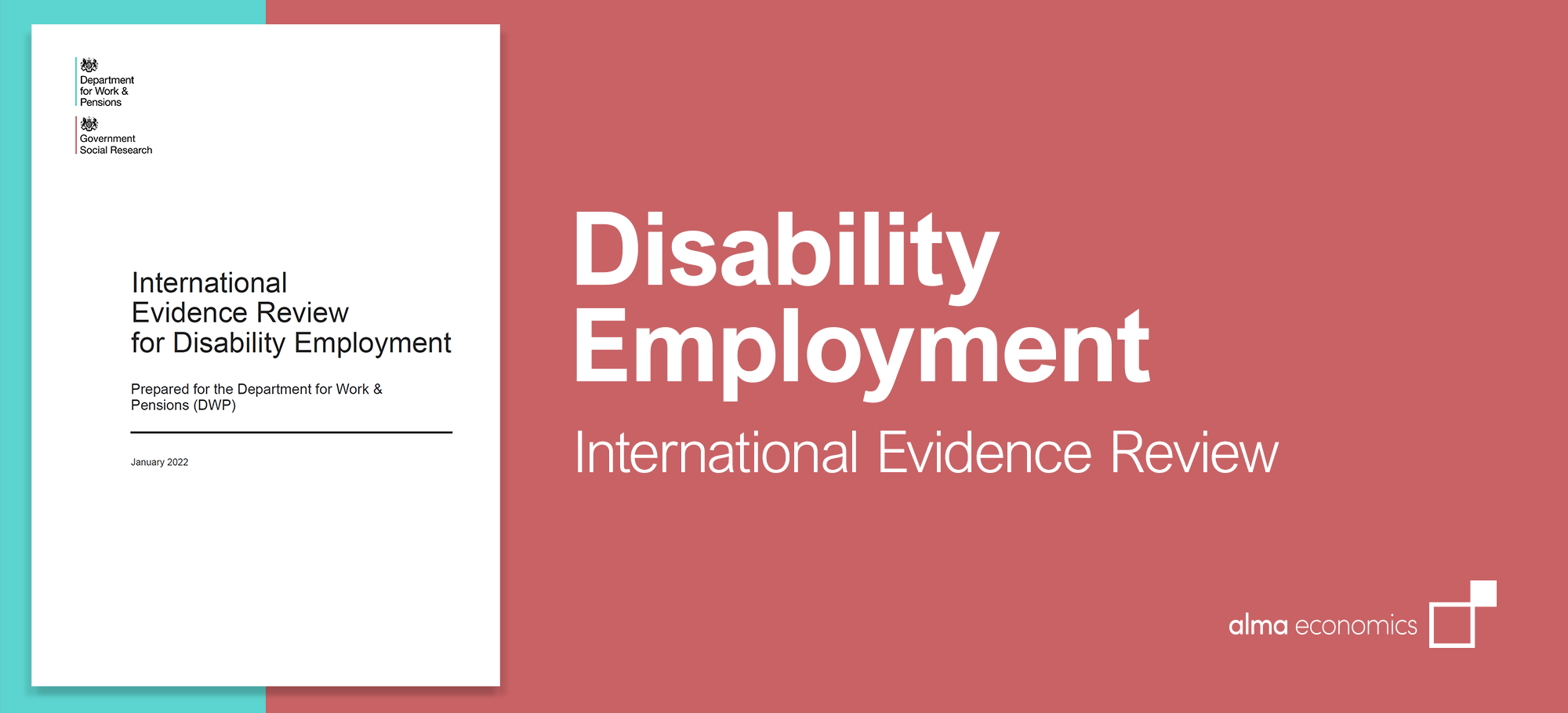International evidence review for disability employment
In 2019 there were over 4.2 million disabled people in employment in the UK, rising from just under 2.9 million in 2013. The increase in employment for the disabled population over this period was faster than that for the non-disabled population (Office for National Statistics, 2019).
Over the past decades, different interventions have been implemented across OECD countries to support disabled people and people with health conditions to access, remain and progress in the labour market. Interventions can target either the employer or the unemployed and jobseeker or both parties. Policies targeting employers include providing financial incentives to employ disabled people and measures aimed at increasing accessibility in the workplace. In contrast, policies targeting potential employees include training and work experience, job search support and supported employment.
In order to create a more effective employment support system, policymakers and programme designers need to understand the characteristics of successful interventions. As national, local and individual characteristics vary, a one-size-fits-all answer is unlikely to exist, but evidence reviews can play a crucial role in highlighting factors that are consistently associated with successful outcomes.
The Department for Work and Pensions commissioned Alma Economics to conduct an evidence review of programmes supporting disabled people and people with health conditions to enter the labour market or remain in employment. The review focused on (i) international and within the UK interventions aiming to help people move into and progress in employment, (ii) the differences in outcomes across different demographic subgroups, and (iii) the factors that proved successful for disabled people and people with health conditions in moving closer towards employment.
Our research found that Individual Placement and Support (IPS), a supported employment model, could help people with health conditions, particularly individuals with mental health conditions, move into employment. Other findings highlighted that combining health support programmes with work-oriented approaches could positively impact employment outcomes of disabled people and people with health conditions. Peer support, mentoring, and coaching could also affect employment outcomes either directly or indirectly by helping people develop their work-related skills. In addition, preliminary evidence showed that new technologies and techniques, which include video modelling, audio coaching, and e-mentoring, could help improve work-related social skills.
Some of the factors driving programmes’ success identified in the evidence review included (i) provision of support personalised to an individual’s needs, (ii) duration and intensity of the programme - higher intensity and duration of a programme could be positively associated with its impact, (iii) low staff turnover, (iv) group participation - interacting with peers could reduce the sense of isolation, and (v) designing interventions which focused on the recovery and future opportunities rather than the disabilities or health conditions of the participants.
Our team also developed an interactive Evidence Map that gives users the opportunity to explore the evidence of interest swiftly and identify gaps in the literature by using the available filters. It is available here.

